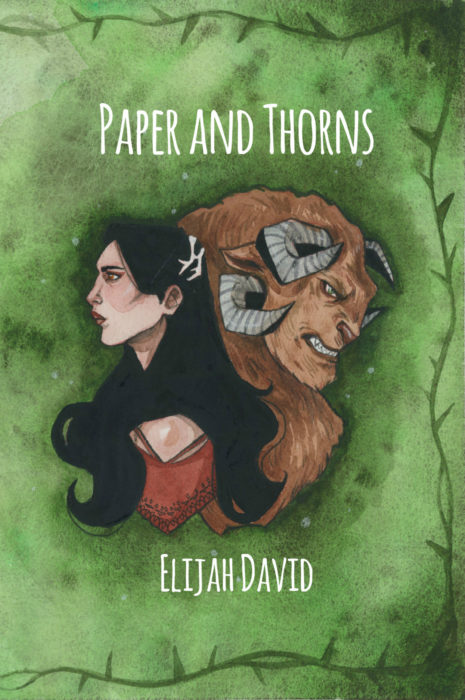Introducing Author and Lorehaven Editor Elijah David as Our New Monthly Writer
Lorehaven’s new monthly articles start this Thursday with our own longtime editor, Elijah David.
Eli wrote the fantasy novel Albion Academy and the recently released novelette Paper and Thorns. He’s also been editing our quarterly issues since the very first spring 2018 release. He’ll release new articles the first Thursdays of each month.
This Thursday, his first article explores the impact of myth in Hans Christian Andersen’s original fairy tale “The Wild Swans.”
1. Eli, how did you first discover biblical faith and fantastic stories?
I can’t remember a time outside of a local church when I was young, and I was baptized fairly young (I was seven or so). I can remember the night I first prayed and asked to be saved, clear as anything in my head, but for many years after I struggled with connecting the trivia of Bible knowledge and the reality of how God’s truth was supposed to change me.
When I was about twelve, I attended a revival at my grandmother’s church and I felt such an overwhelming fear that I’d been living a lie all these years that I prayed a twofold prayer that night: that God would reassure me in my salvation if I was already saved, or that he would save me if I was not. (Later I found this sentiment echoed in Joan of Arc’s response to her inquisitors: “If I am not [in God’s grace], may God put me there; and if I am, may God so keep me.”) I sometimes say that that night was when everything “took,” and that was certainly the point when my faith began to be real to me and not just a matter of course.
 My history with fantastic stories has a similar arc: I’ve always been surrounded by stories and books, and fantastic stories have been among my favorites as far back as I can remember. Disney films, the Muppets, and other fare ignited my imagination, and I often wrote short pieces that either imitated stories I loved or put new spins on tropes I enjoyed. But I never considered writing anything longer or seriously until middle school. Then, after I learned C. S. Lewis’s attestation that certain images like a faun in a snowy wood inspired the first Narnia book, I sat down to write my first book in a similar fashion. It took me four or five years to finish it. But by that time I was hooked.
My history with fantastic stories has a similar arc: I’ve always been surrounded by stories and books, and fantastic stories have been among my favorites as far back as I can remember. Disney films, the Muppets, and other fare ignited my imagination, and I often wrote short pieces that either imitated stories I loved or put new spins on tropes I enjoyed. But I never considered writing anything longer or seriously until middle school. Then, after I learned C. S. Lewis’s attestation that certain images like a faun in a snowy wood inspired the first Narnia book, I sat down to write my first book in a similar fashion. It took me four or five years to finish it. But by that time I was hooked.
These days, I’m never far from a book to read or a notebook in which to jot down my ideas for new stories.
2. What stories are you enjoying presently, nonfiction and fiction?
Currently, I’m balancing a few different books, including a reread of G. K. Chesterton’s Orthodoxy alongside Terry Pratchett’s Reaper Man, Tolkien’s Letters from Father Christmas, and Rebecca Lickiss’s Never After (recommended by friends over at Fairy Tale Central).
In my short stack of books to read sooner rather than later are the final book in Megan Whalen Turner’s Queen’s Thief series, a couple of Jim Butcher’s Dresden Files books, and a prequel to the Frozen movies called Dangerous Secrets that my wife has already read and is frequently restrained from spoiling.
What is your ultimate purpose for life, the universe, and everything in the future?
My purpose (although I think of it more as a goal most days) is to inspire hope in those around me.
Ever since I found myself between jobs a few years back, I realized that I thrive on making a difference (no matter how small) in the daily lives of others. Some days, I am able to do that through my day job in food service. Others, I work toward that goal with my fiction like Paper and Thorns and the soon-to-be-released Path of Lucius Park.
A friend once told me that the world needs people who can interpret the Great Story (as Lewis called in in The Last Battle). He told me he thought that was my purpose. I’ve carried that exhortation in my heart ever since, as both calling and challenge.





























Share your thoughts, faithful reader (and stay wholesome!)